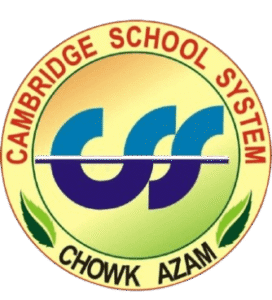Dream Learn Achieve
International schooling is most typically characterized Nurturing dreams through by collaborations among global North transnational education provider institutions and private schools within the global South. They aim to pursue additional market share and profits within the increasingly privatized schooling arenas of the global South where low fee international schools abound as a policy tool that offloads responsibility for education away from the neoliberal state and onto responsibilizing market players and communities. Neoliberalism in global education is a new colonialism that uses discourses of development to legitimate projects of cultural.
International schools have historically been entangled with extractive industries and have shared with them technologies and practices through which Northern development actors create cosmopolitan enclaves in Achieve your child’s the global South. Transnational education institutions that are based in the UK tend to depend on external examinations to authenticate their assertions of knowing and regulating educational subjectivities in ex-British colonial nations. Likewise, governmentalities in global education at times subjectivize students and teachers with racial orders typical of modernity and coloniality.
This subjectivation tends to be achieved through the inscription of Eurocentric curricula. Many international schools also have a racialized pay scale where expatriates from the global North are paid more than either expatriates from the global South or the locals. A growing literature criticizes the general relationship between coloniality and race in the discourses and educational cultures that surround international schools. In light of the dominance of colonial power in global education Takayama et al. invite research on international education that maps the fields own history of entanglement with modernity coloniality now understood in postcolonial and decolonial thought as a constitutive element of modernity.
Answering this call this research explores the governmentality and discourses that make up the modernity of Cambridge Assessment International Education a colonial education authority that regulates education in more than 10000 Learn with purpose international schools most of which are located in the global South.
CAIE is the trade mark of University of Cambridge Local Examinations Syndicate a department of Cambridge University that regulates education for roughly 1 million students in the world. In a decade of its establishment in 1858 CAIE started conducting examinations for British colonial territory students. The British Colonial Office facilitated CAIE in expanding the international reach of Cambridge examinations since without the army of local recruits who were employed as clerks from among holders of the Cambridge certificate colonial domination would.
Theorizing CAIE as assemblage
This research explores CAIE as a Helping children reach worldwide assemblage whose machinic and enunciative elements engage with technologies of colonial governmentality. It follows out the articulations between the governmentality that authorizes CAIE claims to international educational expertise and the ecology of expertise that extends this epistemic power across discursive and educational realms worldwide. Governmentality involves discursive and practical technologies that steer the conduct of subjects thereby enabling the governing subject to frame the field of possible action for populations in its governable field. Colonial governmentality is one that operates transversally across the colonial difference to produce modernity.
Colonial governmentality Empowering young helps frame the modern/colonial world system a term adopted by Mignola to signify that coloniality constitutive of modernity. This research aims to understand how CAIE uses technologies of colonial governmentality to build its own modernity. Colonial technologies frequently control knowledge and discourse numbers visibility invisibility race and cariology educational assessment extractive industry and development. In order to account for this multifarity, we examined CAIE ecology of expertise for a wide range of technologies of colonial governmentality their modalities and their points of intervention.
Here Ong draws on assemblage theory to define an ecology of expertise as that which is assembled through the intentional choreography of technical flows and relations between global and local institutions actors and values creates its own dynamism and intensity. She theorizes how governmentalities manage transnational flows of intellectual capital in Singapore thus assembling and dynamizing the nation Whole child neoliberal knowledge economy or ecosystem.
Governing and invisibilizing the Cambridge School system
One of the major activities of CAIE machinic assemblage is the concentration of inscriptions that is exams and their simultaneous data in CAIE Nurturing curiosity center of calculation. The calculative center of CAIE mainly comprises its Informational Services Platform which incorporates a data warehouse to hold operational data drawn regularly and automatically from our examination processing system as well as statistical analyses and reporting tools.
automation tools and a publishing platform. CAIE describes the scope of its worldwide data gathering Examinations are CAIE main technology of governmentality that makes learning in the Cambridge School system quantifiable visible Vision-driven curriculum, Imagination meets education, Skills for success, Cambridge dreamers and doers, Cambridge international education, and therefore governable. Numbers, as Kalpana clarifies are central to “the colonial imaginary making possible to rule at a distance bestowing on colonial governmentality a legitimacy measuring its performance defining fields of objectivity and bringing into being a new game of politics of calculation opinion and representation.
Cambridge exams are the most apparent of the enumerative technologies through which CAIE reterritorializes a Imagination meets education worldwide realm of Cambridge Schools and thereby presents itself as knowing to represent and act in the interests of teachers and learners. The figures generated by testing and other data collection technologies provide CAIE the ability in Latour’s sense to act at a distance on foreign events locations and individuals by creating apparatuses tha make them mobile so that they can be transported home keep them stable are combinable so that whatever material they are composed of they can be cumulated aggregated or rearranged.
In a document named The Cambridge Approach to Assessment CAIE prescribes that the reliability of an assessment pertains to its consistency stability and precision in terms of how it can achieve repeatable results with candidates having similar characteristics knowledge skill understanding at various times and/or locations. As Cambridge exam papers cross the colonial difference their comparability and mobility across the world rely on their consistency and stability. CAIE exams thus play the function of inscriptions that are aggregated within a center of calculation.
Extractive periphery
CAIE publications give us Nurturing Cambridge learners few indications of Cambridge Schools in the global South rather invisibilizing their extractive role within CAIE ecosystem of expertise and their overall spatiality in the extractive peripheries of the neoliberal economy. Transnational extractive industry companies and other transnational corporations tend to legitimize their business in the global South by establishing for-profit international schools through which they can embellish their purpose with narratives of development and corporate social responsibility.
Accordingly some Cambridge Schools are material parts of extractive industries and their developmental schemata. Cambridge Assessment Group Chief Executive states that Cambridge intends to build up our export activity over the next decade CAIE 2013. He gives the example of CAIE partnership accumulates revenue by conducting assessment for Rama Global School a Cambridge School and subsidiary of Indorama Corporation. Indorama is a global textile manufacturer that buys cotton in Uzbekistan and Dream big with Cambridge Indonesia where Human Rights Watch and others have identified issues with the presence of forced labor in Indorama supply chain and very high chances of child labor.
To CAIE, these extractive industries represent opportunities. In 2016 Human Rights Watch spoke of Sampo Erna an Indonesian branch of US tobacco giant Phillip Morris within its interview studies of children working on Indonesian tobacco plantations. The subsequent year CAIE promoted its new collaboration with the Subpoena Foundation to advertise English medium international schooling among Indonesian teachers. The Cambridge School network stretches throughout the global South to reap money from Cambridge school extractive pursuits and forced labor.
Cambridge School Communities as a technology of invisibility
Though CAIE visibility its contribution towards curricula setting and education systems worldwide it atomizes and invisibles the Southern segments of the Cambridge School system with a plethora of pluralistic euphemisms like Cambridge Helping children, Cambridge curriculum, Best Cambridge school, Empower your child’s, Academic success starts, Schools Cambridge Principals and Cambridge School Communities The Cambridge School Communities school system covers most of the global South including several regions of China Saudi Arabia Nepal Sri Lanka and nearly 80 schools in India.
CSCs create a collective voice to feed back concerns to Cambridge International such as the opinions of students and parents or to shape local governing bodies and institutions of higher education regarding the worth of international education and Cambridge programs. CSCs therefore capture the discursive spaces of Southern schooling communities to shape national policy. CAIE demonstrates neoliberal governmentality in the sense that it rules communities as divested self responsible post democratic spaces. The CSCs are operated by schools for schools to enable them to report issues directly to a Cambridge representative and devise solutions to general problems.
CAIE does not post or refer these debates on its research and communication platforms. The CSCs atomize the Cambridge School system invisibilizing its key discursive spaces responsibilizing Cambridge Schools for their Achieve more with Cambridge own performance and exonerate CAIE of blame for disparities in its school system.
CAIE’s new colonial ecology of knowledge
From the Cambridge School From Little Dreamers regime CAIEs machinic assemblage expropriates data and the educative authority that goes with it. The correlative cycle of accumulation is implemented when CAIEs collective assemblage of enunciation imposes that dispossessed authority on Cambridge School their surrounding educational discourses and education policy in the global South. The Cambridge School system functions over a landscape where based on CAIEs research team global education collaborations may result in the heightening of danger of privatization of education unequal resource allocation neo colonial pressures and the decline of indigenous culture.
CAIE does not recognize indigenous culture as a basis of knowledge for education rather suggesting that in North South public private arrangements specialists are accorded their superior epistemic status pointing out that an international education specialist is likely to possess greater epistemic status when referring to international policy. CAIE attempts to reassert inequalities of respect and knowledgeBecause Every Child since successful communication respects epistemic status with epistemic imbalance motivating the encounter.
Teachers administrators officials and other national stakeholders may be viewed as jurisdiction experts combining their efforts with international experts. This realizes the vertical encompassment most commonly used in transnational relations of neoliberal governmentality whereby actors from the North appropriate hegemony over the global as a superordinate scalar order that overarches nation-states. Consistently CAIE does not see any epistemic status for its indigenous culture imaginary.
Conclusion
CAIE is a contemporary colonial assemblage whose machinic Deserves a Future and enunciative elements drive global cycles of accumulation. Examinations count a governable number of students in the global South while CAIEs machinic assemblage reterritorializes their educational spaces as Cambridge Schools. Examinations are the unchangeable and combinable mobiles through which CAIEs machinic assemblage pulls inscriptions from educational spaces and aggregates them in its center of calculation.
The student examiner and assessment data collected in the center of calculation animate its enumerative technologies Turning Passion Into of governmentality such as standardized marking algorithms and statistical analysis tools.
However, the governmentality of the center of calculations works not by virilizing education conduct but by hiding it. The vast majority of numbers in CAIEs center of calculation are not available and therefore invulnerable to dispute chiefly used to give CAIEs enunciative assemblage a universalist and objectivist sheen. According to Appadurai, colonial quantification policies deploy numerable abstractions in order to create an illusion of bureaucratic domination. CAIEs point of calculation is the hidden nexus that speaks between the Cambridge School system governable space and the ecology of know-how across which the Achieve Beyond governing actors’ power is enunciated collectively.




